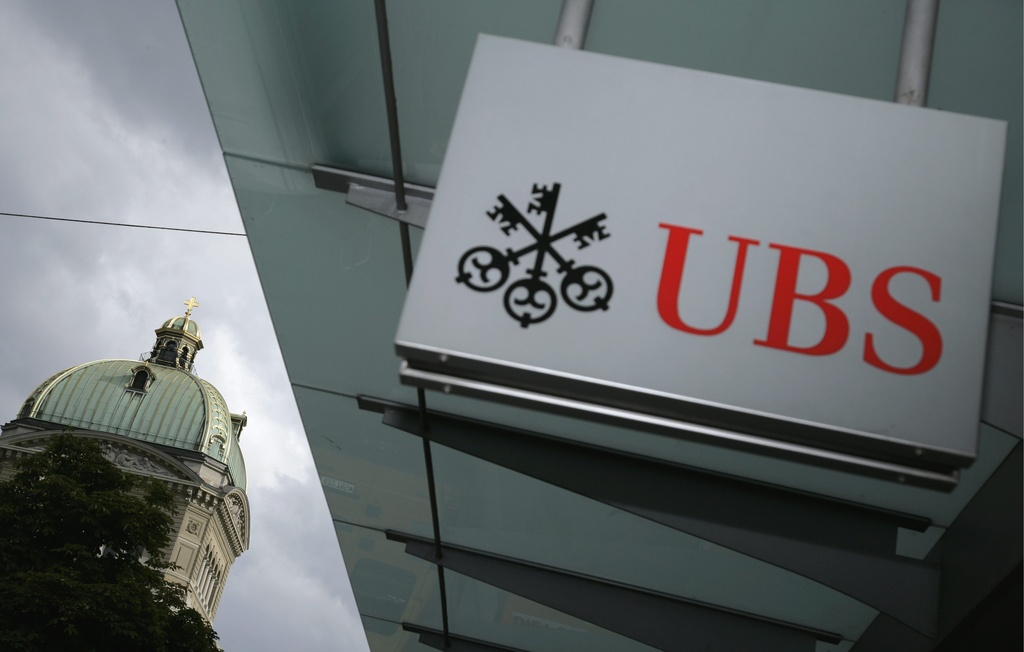UBS deal sealed by parliament

Parliament has endorsed a controversial deal with the United States paving the way for the transfer of confidential UBS data on bank clients suspected of tax evasion.
Justice Minister Eveline Widmer-Schlumpf welcomed the agreement, which came after several rounds of debate in both chambers of parliament during the current summer session.
The House of Representatives fell into line with the Senate on Thursday to approve the treaty, concluded by the government last August. At the same time both chambers threw out a proposal to submit the treaty to a nationwide vote.
“It is a victory for the moderate political forces and a good sign for the future,” said Widmer-Schlumpf after the vote.
She added that the result did not whitewash UBS. The bank had come under great pressure over suspected cases of tax evasion by clients in the US. The Swiss government subsequently agreed to deal to hand over details on up to 4,450 clients, despite banking secrecy safeguards.
However, the Federal Administrative Court in January ruled that the transfer of the data was illegal.
Make or break
Thursday’s final debates saw the Senate once again standing by its approval of the treaty while rejecting an optional referendum.
The other chamber, the House of Representatives, finally followed suit with 81 votes for, 63 against and 47 abstentions.
On behalf of the centre-left Social Democratic Party, Susanne Leutenegger Oberholzer called for a referendum in a bid to rein in the banking sector.
She accused the other political parties in parliament of acting as “an extension of Zurich’s banks”.
The speaker of the rightwing Swiss People’s Party, Caspar Baader, once again lashed out at the government and described the deal as “illegal”.
However, he said the party would no longer insist on a referendum, since a proposal by the centre-left to impose a new tax on bonus payments for bankers was off the table.
During her closing statement in the House, Justice Minister Widmer-Schlumpf warned that rejection of the treaty was likely to trigger fiscal and administrative retaliation measures by Washington.
“I call on you to approve the bill in the interest of the country and of its economy,” she said.
She added that the Swiss administration would now process the remaining cases to hand over the 4,450 dossiers by the end of August as agreed under the deal with Washington.
“Reason prevailed”
The Swiss Business Federation (economiesuisse) praised parliament for its decision. It said unconditional ratification of the treaty would allow both states to solve existing legal issues within the agreed timeframe.
The Swiss Bankers Association declined to comment on the outcome of the vote. It had previously cautioned against rejection of the treaty. “A negative outcome would give rise to great uncertainties and endanger Switzerland’s standing as an economic and financial centre,” a statement said earlier.
In a similar vein the centre-right Radical Party, which traditionally represents the interests of the business community, said that reason finally prevailed in parliament after “weeks of tiring wrangling, blackmailing and political U-turns”.
For their part the centre-left Social Democrats said it was alarming that voters were denied a say on the issue.
“It is absurd that UBS once again reaps the benefits and that parliament failed to take action against excessive bankers bonus payments and the risks of big banks for the country’s economy,” a party spokesman told swissinfo.ch.
Further demands
Christoph Lechner, professor for strategic management at St Gallen University, says Thursday’s vote puts an end to the UBS case with the US authorities.
However he cautions that it could pave the way for further requests for legal assistance in the case of other Swiss banks and demands from other countries, notably from Germany.
“It is absolutely crucial that the new double taxation agreement with the US comes into force quickly to block more claims,” he told swissinfo.ch.
Lechner acknowledges that the decision approved by parliament was necessary from a political point of view. But he remains skeptical whether – from a strictly legal position – it was fair to agree to hand over confidential bank customer data.
Urs Geiser, swissinfo.ch (with input from Andreas Keiser)
UBS is the world’s number two wealth manager by managed assets and Switzerland’s second-largest bank.
It has a workforce of more than 76,000 worldwide, including nearly 30,000 in the US.
In February 2009 UBS paid a $780 million fine and gave information on 255 clients after admitting that some of its bank employees had helped US citizens evade taxes.
UBS, which benefited from a multi-billion bailout package by the government, posted a record loss of SFr9.58 billion in 2008 and finished 2009 with a net loss of SFr2.74 billion.
Switzerland is to hand over data of up to 4,450 UBS accounts by the end of August 2010.
The federal authorities have dealt with about 3,000 cases so far.
About 500 dossiers have already been transferred to the US.
Nearly 1,200 dossiers are ready to be handed over.
Appeals are pending in about 400 cases.

In compliance with the JTI standards
More: SWI swissinfo.ch certified by the Journalism Trust Initiative














You can find an overview of ongoing debates with our journalists here . Please join us!
If you want to start a conversation about a topic raised in this article or want to report factual errors, email us at english@swissinfo.ch.